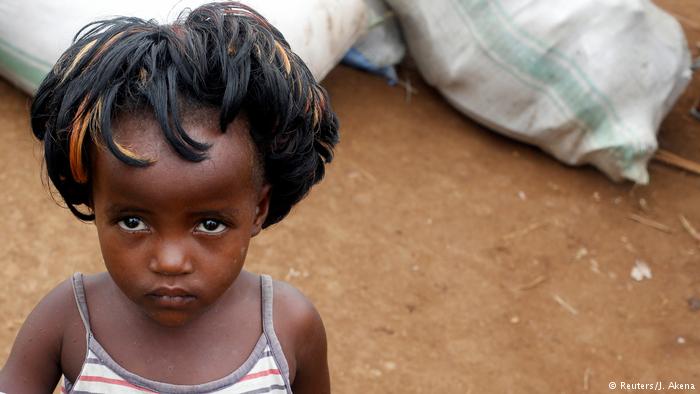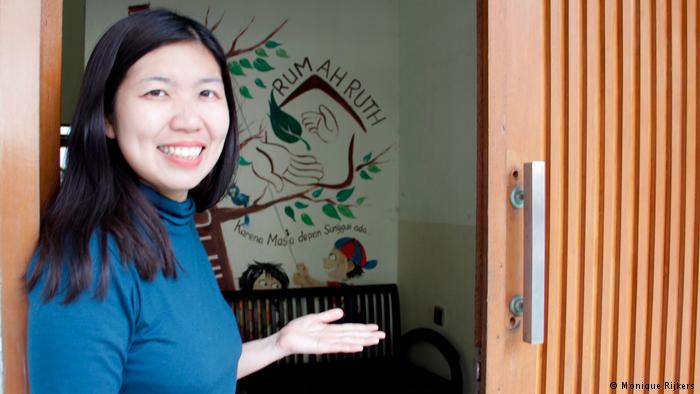Born of rape
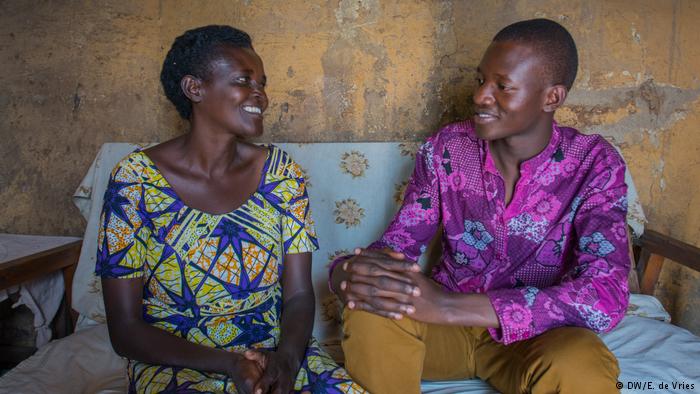
23 years after the genocide, Rwanda is seen as an example in the region. But behind its neatly restored image lurks the tragedy of children born of rape. The trauma for mother and child has yet to be properly addressed.
During the Rwandan genocide, estimates suggest that 250,000 to 500,000 women were raped. Thousands of children were born of this violence. No one knows how many exactly. “Rape is still a taboo subject around here,” explains Samuel Munderere of the Survivor Fund (SURF), an aid organization which supports rape victims. “Many women have never talked about it. A pregnancy only increases the shame.” Meanwhile, their children have come of age in a traumatized country, in a society that perceives them as the “children of killers” rather than victims.
HIV
“I don’t know how many came for us. I couldn’t tell day from night. There was no escape,” remembers Annonciata in tears. We are sitting in her small clay house in the lower part of Kiyovu, a poor neighborhood in the capital of Kigali. For three months, she was raped every single day. When she was finally rescued by the Rwandese Patriotic Front (RPF) she learned that not only was she HIV positive, she was also pregnant. “When I saw my son for the first time, I couldn’t stop crying. Why did this child survive, while my whole family was murdered?”
Now her son, Paulin (22), pours hot tea for his mother. “We are very close, but we haven’t always been,” he admits. When he was a little boy he used to ask her about his father, but she avoided the topic completely. “I couldn’t keep silent forever,” Annonciata says. Like his mother, Paulin prefers not to talk about it. “I just pretend nothing ever happened and focus on the future,” he says. His friends don’t know the truth; he is afraid that they will make fun of him.
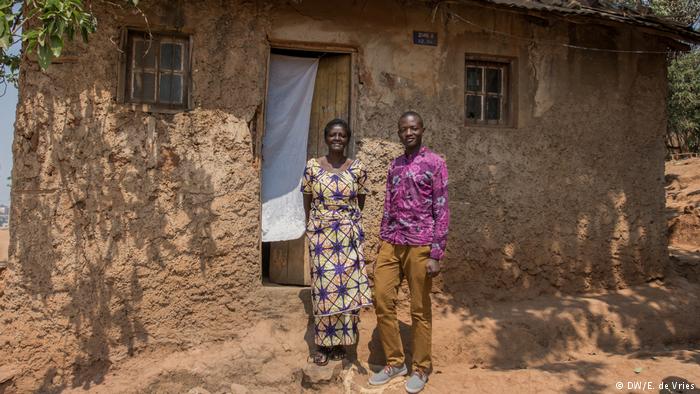
Today Annonciata is proud of her son Paulin
Forgotten victims
Women like Annonciata have little family support and few prospects. Bravely, they raise their children in poverty. “These children usually grow up with a deep identity crisis,” Munderere explains. In Rwanda’s patriarchal society, these youngsters are confronted by the fact that their father – wherever he may be – is a perpetrator of genocide. On top of that, their relationship with their mother can be complicated. “These women didn’t want those babies. Some even managed to terminate their pregnancy, others tried to kill their children later.”
These children are known as the “forgotten victims.” And since many of them were born after 1994, they are not eligible for government assistance for genocide victims. In an attempt to fill the gap, SURF provides them with psychological services, small business aid and tuition assistance.
Angry
Eugenie is a friend of Annonciata’s from her support group. She lives in Kimisagara, a crowded neighborhood overlooking the city. Early in the conflict back in ’94, her husband was killed and she sought refuge in a school. That’s when the Interahamwe, (Hutu militias) began hunting Tutsis with machetes. “They tied up my arms and legs, covered my eyes, and raped me,” Eugenie remembers. Her voice trembles, tears trickling down her cheeks.

Nadia, Asimine and baby Noella
When she missed her period, she knew she was pregnant. “I was terrified that the baby would look like him,” she says. In the spring of 1995, Eugenie delivered a healthy son, Jean-Baptiste. She felt relieved. “He looked like me! From that point on, I knew I could live with this.”
Still, it hasn’t been easy for mother and son. A few years ago, she told Jean-Baptiste the truth. “I was always so angry at her,” admits 22-year-old Jean-Baptiste. “But now I understand how difficult it must have been.”
Illegitimate
The next day I met Nadia, her daughter Asimine, and baby Noella in their stone house on a hill surrounded by banana plantations. During the genocide, Nadia was raped multiple times, even in front of her parents. “When I think about it, I still feel the pain.” It takes her a long time to recount what happened. “I couldn’t look my mother and father in the eyes anymore.”
Nine months later, Asimine was born. “For years, I beat her. I couldn’t stand her presence.” Her parents, who also survived the killings, refused to accept her daughter and stopped seeing her. “They see Asimine as an illegitimate child, even though they saw me raped with their own eyes.”
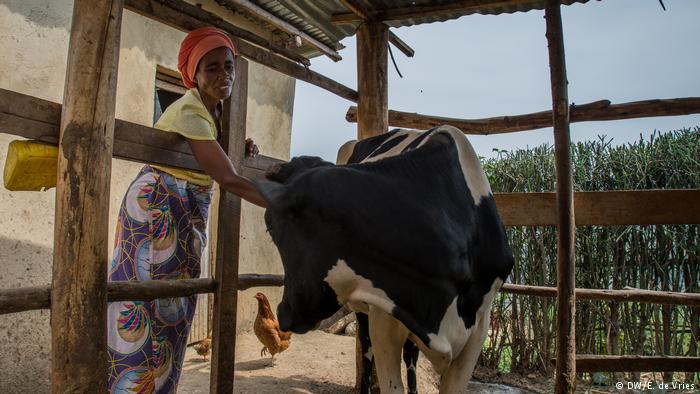
Nadia with the cow which helps feed her family
Through all this strife, Asimine has struggled to grow up without a father. “My classmates all had one and I didn’t. They bullied me,” she says in a voice as soft as a whisper, eyes to the ground.
Healing wounds
Despite their trauma, these women have fought to raise healthy, prosperous children using what little means they have. Paulin aims to finish his studies in computer technology. “And of course, I hope to have grandchildren at some point,” Annonciata adds with a smile. It’s obvious that Eugenie is proud of her son as well, who dreams of running his own pig farm. “My boy really tries to improve our situation.” Yet far off inthe hills, Nadia is less optimistic. She is happy to have a grandchild but would have preferred Asimine to have a job. Still, she is thankful for the cow SURF gave her and today she is able to support her small family on milk sales.
In Paulin’s words, “The wounds will heal. Step by step. Day by day.” But there still lies a long road ahead.
For identity protection, only the first names have been mentioned.
Author: Eva de Vries
_____
WTO RECOMMENDS
Rights Group Documents Mass Rape in Darfur
The rights group Human Rights Watch says that more than 200 women and girls were raped by members of the Sudanese army in a 36-hour assault on the north Darfur town of Tabit beginning on October 30, 2014. DW spoke to Human Rights Watch spokesperson Leslie Lefkow. (From February 20, 2015)
“You have taken my body, but you will never take ME”- Jes Foord’s story of surviving gang rape
One Sunday afternoon in March 2008, Jes Foord and her father took their dogs for a walk to the tranquil area of Shongweni Dam. They were met by a group of four men who beat and tied Tim up before forcing him to watch the devastating gang rape of his daughter. But Jes did not let this ordeal define her. She set up the Jes Foord Foundation, as well as getting married and giving birth to two children. (From August 14, 2017)
Horrific cases exemplify India’s grotesque rape problem
The brutality of a recent rape and murder has drawn attention to an alarming rise of sexual violence in India. Activists say the surge is part of a deeper social dysfunction. Murali Krishnan reports from New Delhi. (From May 17, 2017)




